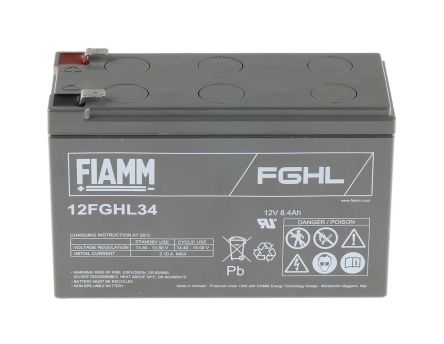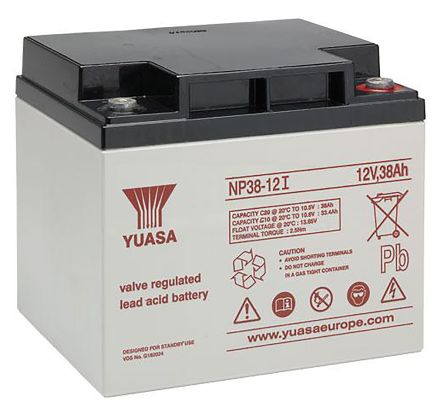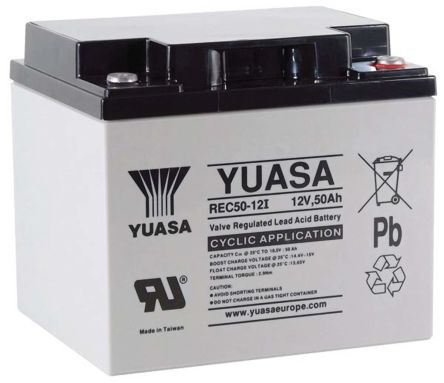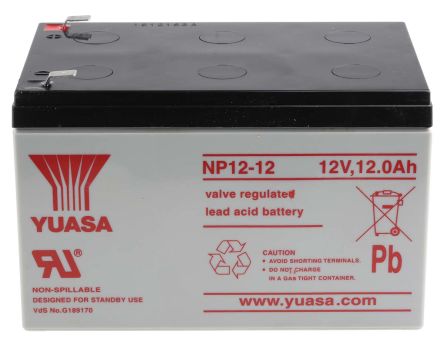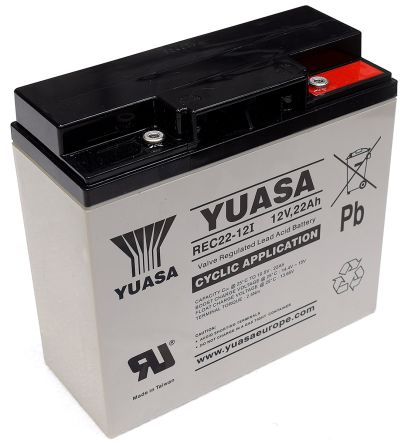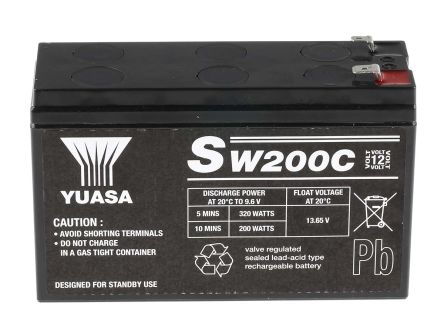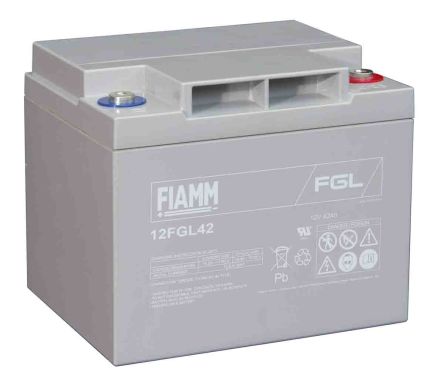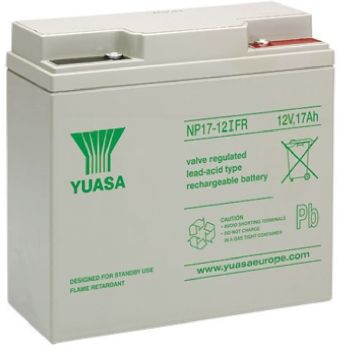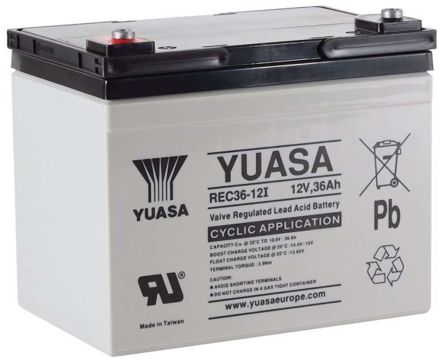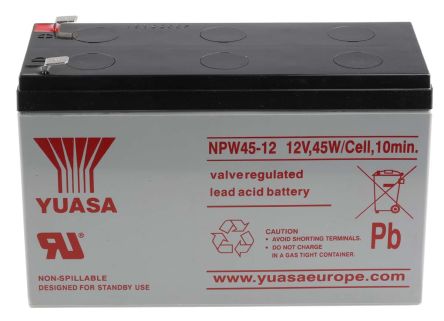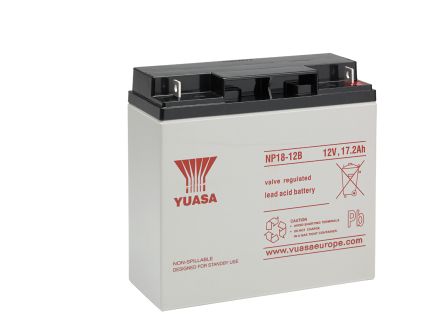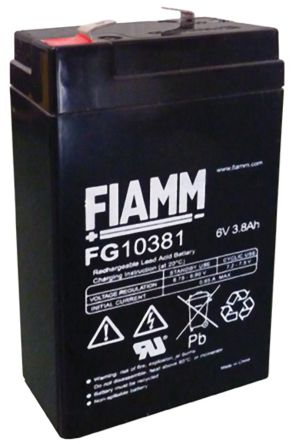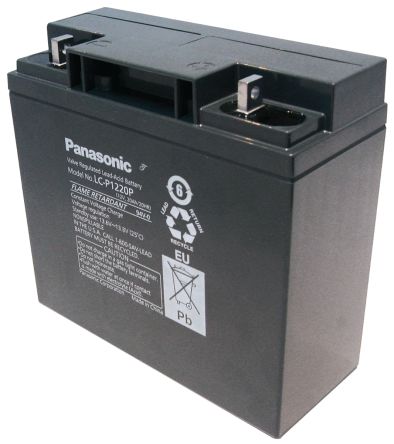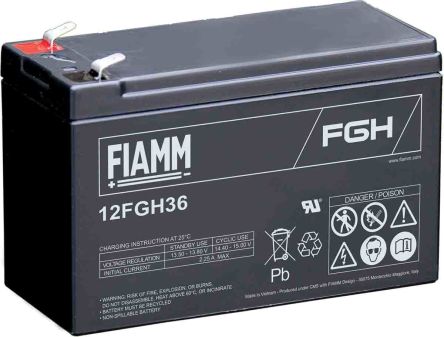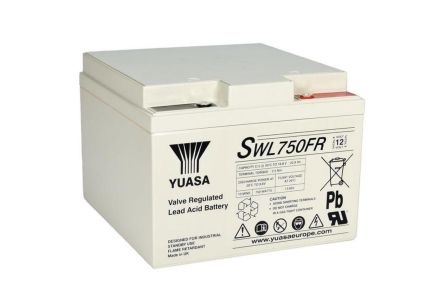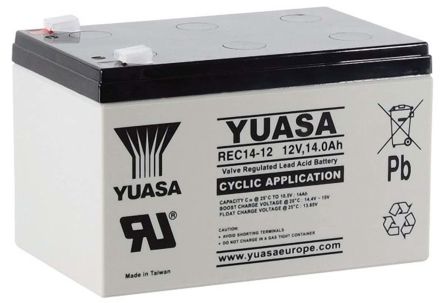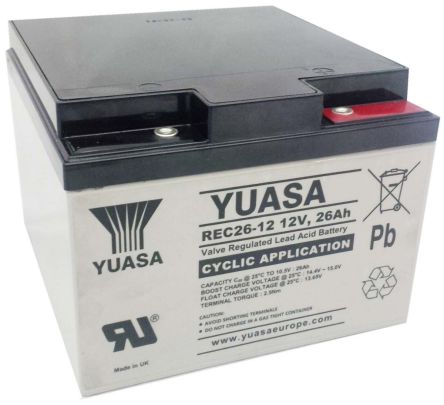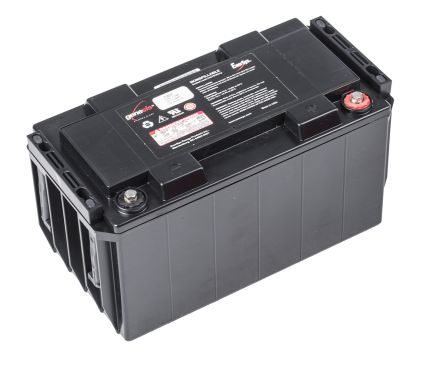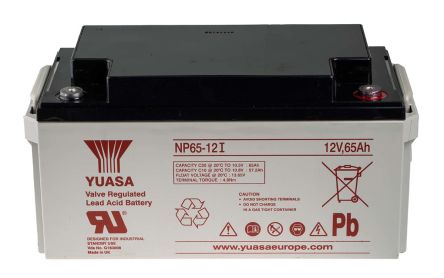- Automation & Control Gear
- Cables & Wires
- Enclosures & Server Racks
- Fuses & Circuit Breakers
- HVAC, Fans & Thermal Management
- Lighting
- Relays & Signal Conditioning
- Switches
- Batteries & Chargers
- Connectors
- Displays & Optoelectronics
- ESD Control, Cleanroom & PCB Prototyping
- Passive Components
- Power Supplies & Transformers
- Raspberry Pi, Arduino, ROCK, STEM Education & Development Tools
- Semiconductors
Lead Acid Batteries
Lead acid batteries can supply high surge currents despite having a very low energy-to-weight ratio and a low energy-to-volume ratio, meaning that they are able to meet large power requirements applications such as backup power supply storage. Their robustness and long lifetime make sealed lead acid batteries ideal for renewable energy systems: in fact, they are the most commonly used batteries across photovoltaic (PV) applications such as solar panels, where they capture surplus energy and store it for later use. They are available in a wide range of sizes and voltages to suit your requirements, typically with voltages of 6V to 24V.
What are lead acid rechargeable batteries used for?
Lead acid batteries are widely used in power storage, such as uninterruptible power source from automobiles to larger-scale power systems.
- Emergency lights
- Uninterruptible power supplies (UPS)
- Alarm systems
- Communication systems
How do lead acid batteries work?
The oxygen in the active material (lead dioxide) reacts with hydrogen ions to form water, and the lead reacts with sulphuric acid to form lead sulphate. The ions moving through the electrolyte then create the current flow.
What are sealed lead acid batteries?
Sealed lead acid batteries (also known as SLAs) are a modification of the original flooded style battery that effectively prevent the user of the battery from accessing the cell compartments. They are designed to be maintenance-free, leak-proof and position insensitive, and have enough acid within the battery to maintain the chemical reaction for prolonged periods.
Can sealed lead acid batteries be recharged?
In the case that SLA batteries have become drained, they can be recharged with the appropriate charger. You can browse our selection of lead acid battery chargers here.
Gel Vs AGM Lead Acid Batteries
AGM (Absorbed Glass Mat)
AGM batteries contain a special glass mat that is made to wick the battery electrolytes between the battery plates. Only enough liquid is stored in the battery to keep the specially designed glass mat wet, so if the AGM battery is broken no free liquid can leak out. AGM batteries are preferred when a large number of amps are required. The life expectancy remains excellent in most cases if they are not discharged more than 60% between recharges and/or recharged fully every 3-6 months.
Gel Batteries
Gel batteries are named as such because silica is used within the battery to turn the acid into a thick, gel-like liquid and preventing the batteries from leaking. This gel allows the electrons to flow between plates but don't offer the same power capacity as the same physical size AGM batteries would. Gel batteries alternatively excel in slow discharge rates and slightly higher operating temperatures, with an excellent deep cycle capability. Recharging these batteries must be done correctly or it will suffer a premature failure.
